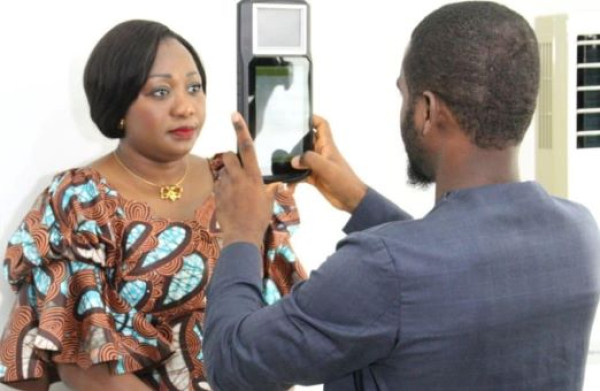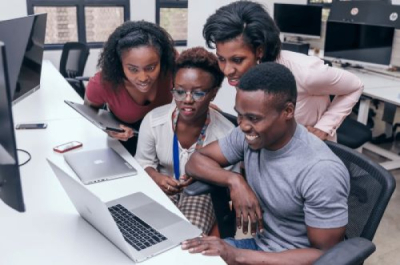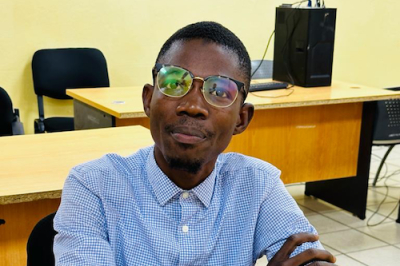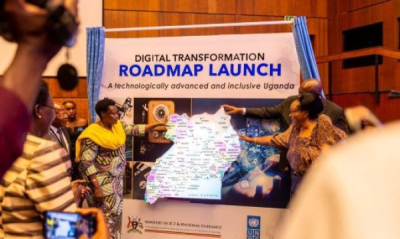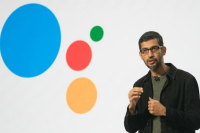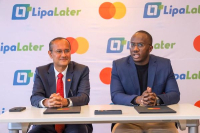In Africa, thousands of ghost civil servants still benefit from governments’ outdated management systems. To tackle the issue, some countries on the continent have turned to new technologies.
Guinea launched last week, August 16, a biometric enrolment campaign targeting officials and contract civil servants.
The campaign was launched by the Minister of Labor and Public Works, Julien Yombouno. Set to last 44 days, it started from the Ministry of Labor and will extend to other ministries over the period. Over 87,000 civil servants are expected to be enrolled.
“The main goal is to determine the real headcount of the civil service. With the accurate figures, we will be able to calculate exactly how much the State pays its civil servants every month. The end goal, however, is to establish a single administrative and accounting registry,” Yombouno explained.
According to the Minister, the single biometric registry will regroup the data of all Guinean civil servants and contract employees, thus guaranteeing "a single agent, a single registration number, and a single salary".
The government picked Digitalis, a local startup, to carry out the project. The company develops biometric applications and software.
Enrolled civil servants will get a receipt after registering. They will later exchange the receipt for their professional card.
Like Guinea, several African countries have recently turned to technology to flush out ghost workers and put an end to the payment of undue wages. The aim is to clean up the civil service and remove the ghost workers who cost African countries tens of billions of CFA francs every year.
Samira Njoya
In 2012, the family counseling association Guryosamo was founded, in Somalia, to help young Somalis get married among other things. Ten years later, it decided to modernize operations, hence the birth of Guurdoon.
Guurdoon is a digital solution developed by the Somali association Guryosamo, founded in 2012 and headed by Ahmed Abshir Geedi. The solution, launched in 2022, connects users looking for spouses.
In the Somali language, "Guurdoon" literally means "in search of marriage".
"We have big problems today with marriages. Our young people are rushing to get married and then immediately getting divorced. We understood the need to promote a platform where people of all ages can meet and find each other as partners since our young people are mainly on social networks these days. The [solution] is something totally new, and some people are confused by its use," says Ahmed Abshir Geedi.
Its mobile app is available only for Android devices. Through the app, users can register for accounts by entering a number of information. Among other things, they will input their level of education, the desired education level, and the employment status of their partners, etc..
Unlike traditional dating applications, where users have to swipe profiles, Guurdoon selects the best profiles that match users’ requirements. "I entered the characteristics I wanted in my partner and the app suggested [...] I just need to make up my mind and choose one," explains Abdifatah Adan, a tuktuk driver in Mogadishu. Although Somalia is a conservative, religious-oriented society, the app has already been downloaded more than 50,000 times, according to Play Store data.
Adoni Conrad Quenum
FAST Accelerator connects African startups to its dynamic ecosystem and an extensive partner network
The accelerator focuses on supporting and funding the next generation of African innovators, particularly in sectors that can harness the power of artificial intelligence.
FAST Accelerator is a startup accelerator launched, in 2022, by Flapmax, a US-based data and artificial intelligence technology company founded by Dave Ojika, in partnership with Microsoft. It identifies, supports, and funds African innovators building impactful businesses.
“FAST Accelerator represents our commitment to supporting ambitious entrepreneurs who are driving sustainable innovation across the continent of Africa and emerging markets,” said Dave Ojika.
The accelerator’s program combines business development, technology integration, funding, and community-building opportunities to enable African start-ups to grow faster and sustainably.
Through its AI Academy, the accelerator also gives companies access to a pool of specialized talent and its over 500 global partners. It works with a network of venture capital firms to offer funding opportunities for project carriers.
Startups taking part in its program also have access to Microsoft and Flapmax engineering teams to innovate and create new products or offers. They can earn up to $250,000 in cloud credits, including access to the Founders Hub and virtual reality (VR) hardware. They also have access to Microsoft's venture capital network to raise funds and develop their business, among other benefits.
Although open to all technology sectors, FAST Accelerator is particularly interested in start-ups innovating in key areas where AI can be exploited. These include education, manufacturing, fintech, agriculture, and healthcare.
In the first cohort (2022) of the FAST Accelerator program, 12 start-ups were selected and supported. The registration phase for the second cohort of the program, launched in partnership with Intel, closed on August 5, 2023.
FAST Accelerator also organizes hackathons and events such as the AI Builders Day 2023, which took place on April 13. It developed the AI Builders Garage, a platform designed for young entrepreneurs and developers to turn their ideas into sustainable solutions.
Melchior Koba
This entrepreneur is leveraging his software development skills to make online learning more flexible globally. He aims to prepare the youth for the job market through his startup.
Musa Turay is a software developer with expertise in web and mobile app development, database management systems, DevOps, and user experience design. He has several years of diverse project experience.
Musa holds a Higher National Diploma in Information and Communication Technology from Sierra Leone’s Eastern Polytechnic (2021) and a Full Stack Web and Mobile App Development Certificate from Orange Digital Centre, along with various online certifications.
In 2019, he founded TurayMathic e-Learning Technologies to offer flexible online learning experiences globally. His aim, through the startup, is to democratize education, empower individuals, and make them career-ready. “My vision is to provide Sierra Leoneans and worldwide students with flexible and rigorous online learning experiences that equip them with the knowledge, skills, and characteristics necessary for career readiness,” he said.
TurayMathic e-Learning stands out with cutting-edge AI-driven instruction, global accessibility, career readiness focus, educator support, and a thriving community, offering personalized learning, multilingual courses, real-world projects, industry partnerships, affordability, security, social impact, and continuous innovation.
As the founder of TurayMathic e-Learning Technologies, Musa aims to be recognized as a leader in innovative instructional technologies, ensuring education reaches everyone globally, and fostering a digital community for continuous learning, communication, and collaboration.
In January 2022, he was incubated at the Orange Digital Centre, gaining valuable insights and skills in programming, database management, and more. Participating in the program provided me with a valuable opportunity to delve into high-level programming and gain a comprehensive understanding of software development, he said.
Throughout his career, he has worked on diverse projects, ranging from web and mobile applications to backend systems. His immediate plans include excelling in his current role and pursuing advanced training. Musa aims to shape the future of software development positively as technology evolves.
Hikmatu Bilali
The Southern African country joins the technological advancement trends in the region. This move aims to increase the security of people and will contribute to data management for social and economic development.
Namibia's Cabinet has given the green light to the implementation of contactless microchip identity documents. These advanced digital IDs will consolidate various national documents, marking a pivotal step in the country's technological evolution. Minister of Information and Communication Technology, Dr. Peya Mushelenga, announced this development during his customary weekly Cabinet Briefing which took place on August 15.
During an interview with Nina on NBC Digital News' Daily Roundup, Jackson Wandjiva, Executive Director of Civil Registration at the Ministry of Home Affairs, Immigration, Safety, and Security (MHAISS), emphasized that the move will help “Provide a secure and inclusive identity management environment that will benefit the holder and the service providers (..) eliminate fraud and identity theft.”
The initiative falls under the purview of MHAISS, which has received a directive to explore the integration of diverse national documents into these digital IDs. With this revolutionary approach, Namibia aims to streamline administrative processes, enhance security measures, and provide citizens with a more convenient means of identification.
This recent Cabinet decision highlights the nation's proactive approach to technological advancement. These key developments signal the government's determination to propel the country toward a brighter and more inclusive future.
Hikmatu Bilali
Digital technologies are quite useful, and many of their advantages emerged during the Covid-19 crisis. Seduced by them, many African governments decided to make the digital sector a pillar of their development strategy.
The Ugandan Ministry of ICT and National Orientation launched a new plan for digital transformation on August 17. The plan revolves around seven (7) key axes: digital infrastructure and connectivity; digital services; cybersecurity, data protection and privacy; digital skills; innovation and entrepreneurship; systematic experimentation and preservation of the national environment.
"The Digital Transformation Plan represents a bold vision of our nation's future, one that is not driven by technology alone, but in which technology serves as a catalyst for sustainable development, economic growth and improved living conditions for all Ugandans," said the ICT Minister, Chris Baryomunsi.
The five-year strategy (2023-2027) was drawn with the help of several partners, including the UN Development Program (UNDP). It is set to foster an administrative, economic, and social environment that will benefit both Ugandans and foreign investors.
According to a government survey on ICT conducted nationwide, only 5% of government ministries, departments, and agencies had internal IT interoperability frameworks in 2022. Furthermore, only 61% of local governments had access to the Internet, while only 5.6% of their staff regularly used a computer for business purposes.
Around one in two businesses (55%) had Internet access in the year reviewed, and only one in three had a professional website; 94% of the population still had no Internet access at home. 74% of the population had a cell phone, 49% of the population had a Mobile Money account, versus 10% with a personal bank account. The broadband Internet penetration rate was 55%. Currently, the contribution of ICT to gross domestic product (GDP) is estimated at 9%.
Uganda’s new Digital Transformation Plan falls under its 2040 Digital Uganda Vision launched in 2013.
Muriel Edjo
Amid the ongoing technological revolution, the tech giant has introduced a range of initiatives aimed at involving African startups. This highlights Google's dedication to cultivating innovation within the African technology landscape.
Global tech giant Google has introduced the 'Google for Startups Accelerator: AI First' program, now open for applications. This initiative aims to support African startups using artificial intelligence (AI) to solve local problems.
The 10-week equity-free accelerator is designed for startups up to the series A stage operating in Africa or working on Africa-focused AI solutions. Participants will gain access to Google's AI expertise, up to $350,000 Google Cloud credits, mentorship from AI professionals, and networking opportunities.
The program highlights AI's transformative global role while acknowledging African startups' contributions to tackling regional issues with AI solutions. Folarin Aiyegbusi, Google's Head of Startup Ecosystem for Africa, commended the dynamic tech landscape and the startups' vision. “AI First' is more than a program; it's a testament to our belief in the vision of these startups, ensuring they have the support and guidance they need to realize their full potential,” he said.
Since its 2018 launch, the Google for Startups Accelerator Africa program has aided 106 startups across 17 countries, raising over $263 million and creating 2,800 job opportunities.
Startups interested in the initiative can apply via this link by September 6, 2023.
Hikmatu Bilali
The digital solution was launched by two entrepreneurs experienced in the management of private, government, and non-profit initiatives. Its aim is to demystify mathematics.
Watobe is an edtech startup that teaches, mainly secondary school students, mathematics. The Cape Town-based start-up was founded in 2019 by Erik Lönnroth and Henry Warren.
It has an Android app through which users can seamlessly access its courses. Users on the iOS platform, however, need to download the videoconferencing app Zoom to be able to access its courses. The startup offers two live classes weekly. Those who miss the live classes can access the recordings on its platform 24 hours after the live session to solve the quizzes on time.
Based on quizzes and participation in live classes, teachers track learners’ progress and send weekly reports to parents. "Watobe live classes are interactive from start to finish and include plenty of opportunity for questions. Questions can be asked either verbally or in writing using the live chat," the platform says in its FAQ.
The edtech startup offers two types of packages: one costs 299 rand (approx. $15.95) and the other is 99 rand. It also offers a 14-day trial for learners to validate whether or not this type of learning is right for them. This trial period costs 50 rand. Since its launch, the company has raised around $1.1 million to finance its growth.
Adoni Conrad Quenum
His company, Charis UAS, manufactures self-driving cars that leverage artificial intelligence to generate 3D geospatial data in near-real time. These innovations earned him numerous awards and distinctions.
Eric Rutayisire Muziga (photo) is a Rwandan entrepreneur who graduated from the University of Minnesota with a master's in electrical and electronic engineering. He is the founder and CEO of Charis Unmanned Aerial Solutions (Charis UAS), the first drone manufacturing company to be licensed in Rwanda.
Launched in 2014, Charis UAS harnesses the power of artificial intelligence and cutting-edge technologies to deliver timely and accurate 3D geospatial data to help industries make smart decisions. It specializes in building and integrating sensor systems, drones, and data solutions to deliver high-quality service. The company covers several countries, including Senegal, Côte d'Ivoire, Ghana, Gabon, the Republic of Congo, DR Congo, Angola, Uganda, Kenya, and Tanzania.
Charis UAS developed Inganji, a drone technology “wholly designed and manufactured in Rwanda by Rwandan engineers and pilots with thousands of flight time experience.” According to its designers, the technology boasts notable features such as high data security, energy efficiency, high resolution, and an intelligent zoom camera. It is suitable for security and surveillance applications, we learn.
Charis UAS has also developed a digital project manager for critical infrastructure projects. Called Charis Analytics, it digitizes worksites and tracks projects in near-real time with actionable information while enabling collaboration with all stakeholders and accelerating project completion.
In addition, the drone company has designed a drone capable of eliminating mosquitoes over large areas, thus contributing to the fight against malaria. The device, equipped with a 10-liter tank containing insecticide that destroys mosquito breeding sites, was immediately adopted by the Rwandan government.
The CEO is a member of the board of directors of venture capital and private equity company Crystal Ventures. His works have earned him several distinctions. In 2019, he made it to the tech category of the Forbes 30 under 30 list. He was also in the top 3 of the All Africa Business Leader Award. Through Charis UAS, he is one of the winners of the 2023 Google for Startups Black Founders Fund.
Melchior Koba
The partnership aims to empower people and businesses by leveraging technology infrastructure to improve access to goods and services. This step should contribute to fostering economic growth on the continent.
Mastercard, a global fintech leader, partnered earlier this month with Lipa Later, a key fintech player, to boost the adoption of Buy Now, Pay Later (BNPL) services in Africa.
This collaboration will offer tailored BNPL solutions and improved payment options, benefiting both consumers and merchants. With Mastercard's merchant network, tech innovations, and Lipa Later's consumer credit expertise, the partnership aims to enhance access to crucial products and services, streamlining credit access and transaction experiences.
Kenya, with an 84% formal financial service usage according to the 2021 FinAccess Household Survey Report, shows growth in financial inclusion. Yet, a significant portion still lacks access. This collaboration seeks to bridge this gap, extending digital financial services to the underserved.
Shehryar Ali, Mastercard's East Africa Country Manager, stressed the partnership's role in providing new digital payment solutions. By leveraging Lipa Later, Mastercard aims to ensure secure digital payments and foster financial inclusion for underserved communities, thereby promoting economic growth. “Mastercard is fundamentally committed to promoting financial inclusion, and this alliance unfolds fresh avenues for consumers and retailers to tap into previously inaccessible digital payment solutions,” she stated.
The BNPL solution simplifies financing at checkout, with instant Know Your Customer (KYC) capabilities. This benefits consumers and boosts merchant revenue, allowing a wider product range.
Eric Muli, CEO of Lipa Later Group, highlighted the partnership's significance in expanding BNPL and lending solutions in Africa. The collaboration seeks to stimulate economic empowerment and innovation in Africa's retail sector.
This partnership showcases Mastercard's commitment to inclusive growth through technology-driven solutions. By backing new payment models and local entrepreneurship, Mastercard propels economic progress in Africa.
Hikmatu Bilali
More...
Amid fast-paced technological development worldwide, innovation has become a driving force for social progress. In Africa, Pangea Accelerator stands as a beacon of hope for budding entrepreneurs.
Co-founded in 2017 by Jonas Tesfu, Pangea Accelerator is a Norwegian acceleration program and investment platform that provides African start-ups support, mentorship, and funding.
Through mentorship, workshops, networking opportunities, and initial financing, Pangea Accelerator equips start-ups with the necessary tools to transform innovative ideas into impactful businesses. Currently, most of these actions are carried out in Kenya.
The accelerator develops several programs such as The Young Ventures Accelerator Program 2.0. Supported by GIZ, this program runs over six weeks, followed by a six-month mentorship session, and targets innovations or start-ups in the affordable housing sector located within a 70 km radius of the Nairobi metropolitan area.
The Pangea Scaleup Program, which is also a program of the accelerator, finds the best-expanding businesses and grows them from the seed phase to the Series A phase. It targets start-ups active in sectors such as fintech, health tech, logistics, agriculture, renewable energy, and other digital solutions.
Pangea Accelerator also produces other local acceleration programs based on key stages and focused on validation and scalability. It hosts a series of events centered on Africa's development, investment, start-up ecosystems, and policy.
The accelerator is supported by several national and international institutions, including Microsoft, The Factory, IKEA Foundation, Katapult Accelerator, AfriLabs, Innovation Norway, UK Kenya Tech Hub, and African Business Angel Network, among others.
Melchior Koba
Election periods are characterized by sensitive information and potential misinformation due to conflicting intentions, but today's technology can help minimize these issues.
Mozambique is introducing an innovative digital platform that employs artificial intelligence (AI) to counter disinformation and uphold information integrity during elections. While announcing the adoption of the digital platform -during a press briefing on August 14 - Regina Matsinhe, spokesperson for the Technical Secretariat for Electoral Administration (STAE) emphasized its significance for the upcoming municipal elections scheduled for October 11th.
The digital platform, named "eMonitor+," developed by the United Nations Development Program (UNDP), has already proved effective in countries like Lebanon, Tunisia, Libya, and Peru. Mozambique's adoption sets it apart as the first Southern African and Portuguese-speaking country to embrace AI for election integrity.
Matsinhe highlighted the platform's role in promoting information integrity and countering disinformation. "We're implementing an innovative AI-based platform to ensure information integrity," she stated.
The eMonitor+ platform employs AI and machine learning to analyze online media, identifying electoral violations, misinformation, hate speech, polarization, pluralism, and online violence against women. This analysis empowers election commissions and media stakeholders with insights through graphical representations.
With around 4.5 billion meticais (approximately US$70 million), STAE covers logistical aspects leading to polling day - from preparation, training, and material acquisition to transport, equipment, and human resources.
For successful 2023 municipal elections and subsequent 2024 general elections, an estimated 18.7 billion meticais (US$292 million) is needed to ensure proper preparation.
Mozambique's AI-driven approach underscores its commitment to transparent democratic processes. By combating disinformation and promoting fair practices, the nation sets a global example for modernizing elections.
Hikmatu Bilali
Well aware that the country can have no sustainable digital economy without reliable and quality internet, the South Sudan government has been, since 2020, taking steps to reinforce its capacities in this aspect.
The Presidents of South Sudan and Kenya, Salva Kiir Mayardit and William Ruto, respectively, signed a fiber-optic cable deal last Saturday, August 19, in Nairobi. The cable will connect Eldoret in northwest Kenya to Juba, the capital of South Sudan.
William Ruto, on the occasion, said that the project will enhance connectivity, foster integration, and boost intraregional trade between the two countries.
The signing of a deal on the establishment of a fibre optic cable along the Eldoret-Juba Road validates Kenya’s commitment to strengthening its ties with South Sudan. pic.twitter.com/KcOPaRRN9k
— William Samoei Ruto, PhD (@WilliamsRuto) August 19, 2023
This project is part of the Lamu Port-South Sudan-Ethiopia-Transport Corridor (LAPSSET) project. Under the latter, seven key infrastructure projects will be developed in the three nations, to achieve economic growth and prosperity and reduce the infrastructure deficit.
Before the recent deal, Kenya and South Sudan already shared a fiber-optic cable. Indeed, in October 2020, 630 km of fiber-optic cable were deployed at the border between the two countries, under the regional project for the facilitation of transport, trade, and development in East Africa. The World Bank and the Kenyan government financed the cable’s establishment at the time.
The new interconnection will link the South Sudanese capital to the rest of the world. It will also reduce the high cost of the Internet, consequently improving cross-border communication and trade.
Samira Njoya
In Africa, digital payment methods are booming. Fintech startups are, therefore, launching ever-innovative products for day-to-day use.
Flash is a fintech solution developed by an Egyptian eponymous start-up. It enables users to pay their bills or purchases by just scanning a QR code.
According to Erik Gordon, CEO of the startup behind the solution, the aim is to make payments easier and secure for everyone. For that purpose, the startup has a mobile app for Android and iOS devices. Through the app, users can create their Flah accounts to access the various features. They need to add bank cards or top up their wallets to be able to make transactions.
In addition to its basic functionality, Flash plans to add new financial management tools to help users make better spending decisions, according to Erik Gordon. To develop its technology and platform, the startup has already raised over $6 million. According to Play Store data, the Android version of its app has been downloaded more than 5,000 times.
Adoni Conrad Quenum


